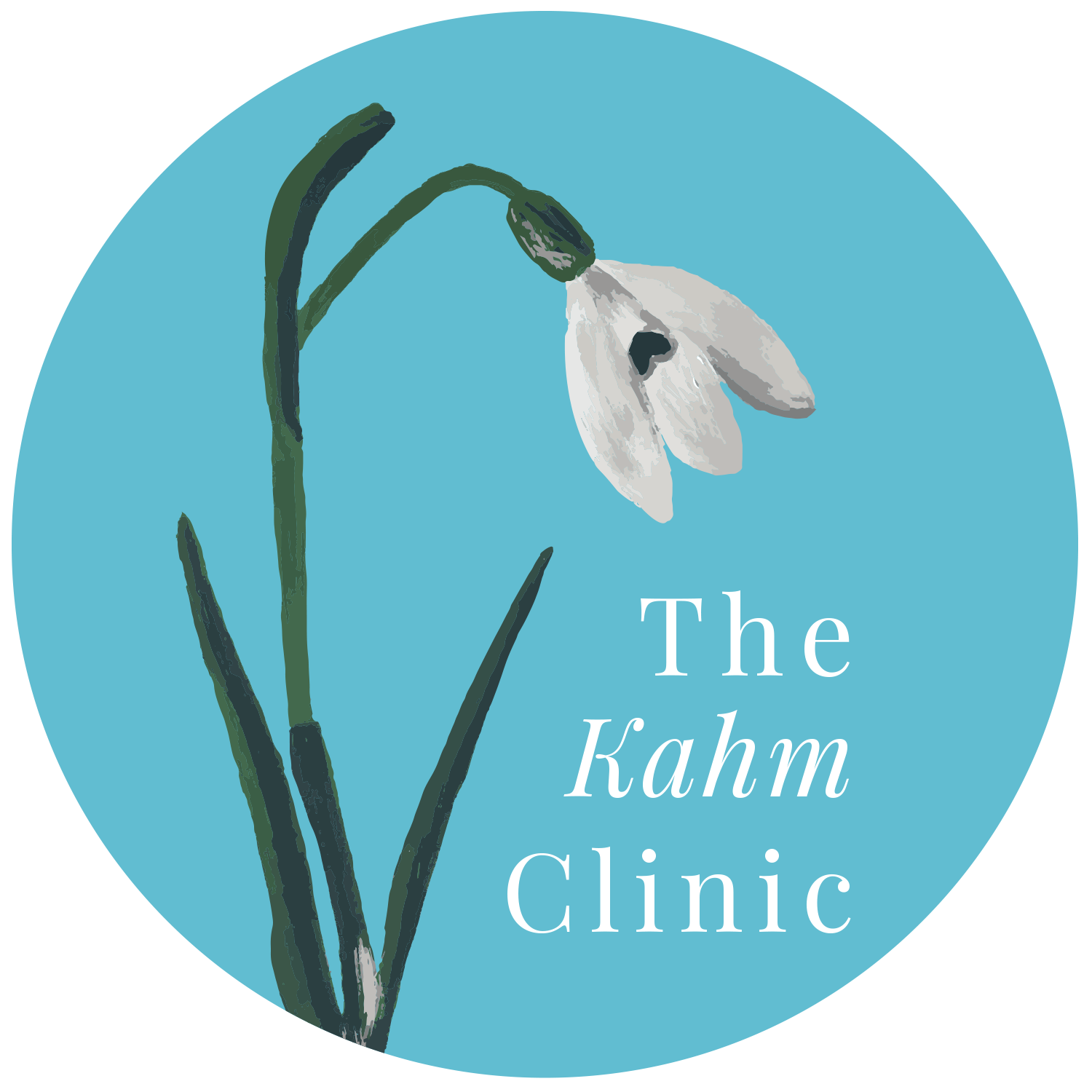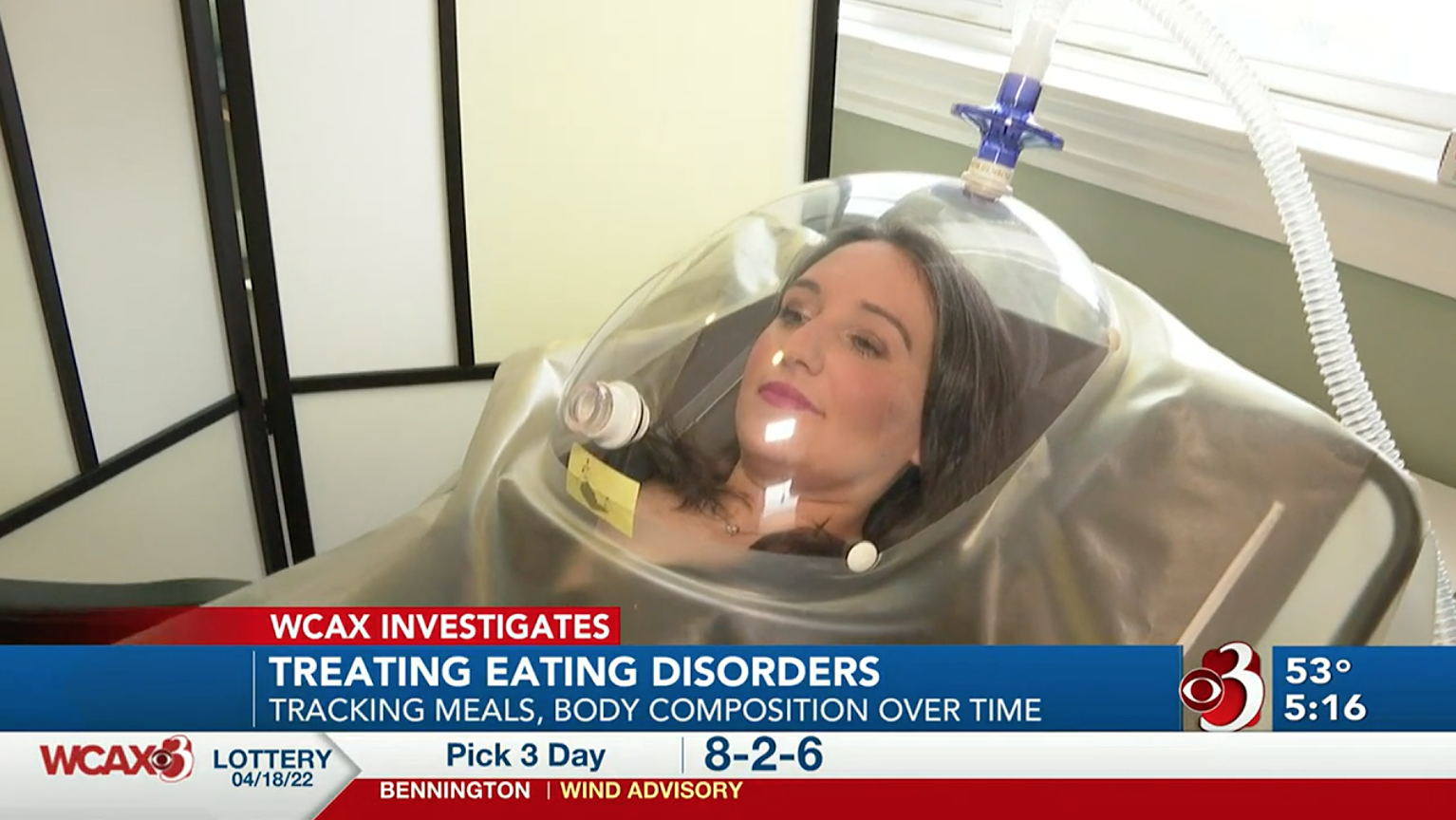The Complexities of Eating Disorder Treatment and Recovery
Eating disorder advocacy groups estimate that over 55,000 Vermonters will suffer from an eating disorder in their lifetime, and yet, finding care in the Green Mountain State is incredibly difficult. This life-threatening condition impacts both the mental health and the physical health of suffering individuals, making it all the more important for patients to have access to professional help and adequate resources.
How do clinicians manage the complexities of treatment and ensure that patients stay on the road to recovery?
Reporter Cat Viglienzoni of WCAX recently stopped by our offices in Burlington. To start, nutritionist Elaina Efird, RDN, CD, CEDRD, CSSD showed her a plate of rubber food that she uses with eating disorder patients. “This is what a normal amount of food looks like,” she explained. “Someone with an eating disorder may eat like a quarter of that. They believe it’s plenty of food, and I’m like, ‘No, no, no.’” Using the models, she can easily demonstrate how a healthy plate of food looks.
When it comes to eating disorder treatment, people often feel like they can do it on their own. “That’s actually a big conception with this disease,” Elaina said. “And that’s why a lot of people don’t get the actual care that they need — and why their eating disorder lasts or progresses longer than it should.”
Developing a recovery strategy for each patient begins with a body baseline.
At The Kahm Clinic, we use metabolic testing to measure how many calories an individual burns throughout the day (including during rest) as well as what type of fuel the body is using. If the body is relying on too much lean mass (muscles, brains, organ tissues, etc.) for energy, it’s most likely being underfed.
Cat tested the machine, which she described as “being inside a spaceship.” To complete the metabolic test, she simply breathed in and out for 20 minutes. By measuring the carbon dioxide she breathes out and the oxygen she takes in, the results show dietitians what’s happening inside her body.
In a previous blog post, we shared the story of former patient Amelia Cassidy. She credits her recovery in part to the use of metabolic testing. “I could see the numbers clearly in front of me. Elaina took this no-BS approach where she was just like, ‘Listen, these are the numbers. I’m not making something up,’” she shared. Prior to these results, she was paranoid that people, including her doctors and parents, were “out to make her fat.”
Elaina says this viewpoint is common. “Patients often doubt whether their eating disorder is serious, especially if they’ve been praised for losing weight,” she explained.
As for the metabolic testing, she added, “It really helps with the patient’s buy-in. A lot of times, people come in and say, ‘I don’t think it’s that bad.’ We do the metabolic test, and they’re like, ‘Oh, maybe I do need help.’”
Having more eating disorder treatment options available in the state would make the care provided by The Kahm Clinic even better.
We work to create a treatment team for each patient, including a nutritionist, a therapist, a primary care physician, and even a psychiatrist. Still, there are limits to what we can achieve seeing someone for an hour or so only once or twice a week.
“They might need a lot more than that. For instance, they may need meal support — that’s three meals, every single day — and that’s not available in Vermont,” Elaina said.
Right now, we have a number of patients who need more intense treatment but have no other options. If we had other options available — like an inpatient treatment program or even partial hospitalization program — they could more adequately receive the help they need. To read more about The Kahm Clinic’s efforts to improve eating disorder care in Vermont as well as how lawmakers are stepping in to help, check out last month’s blog post.
To talk to a professional about eating disorder treatment, please reach out to our staff or schedule an appointment at The Kahm Clinic today.

